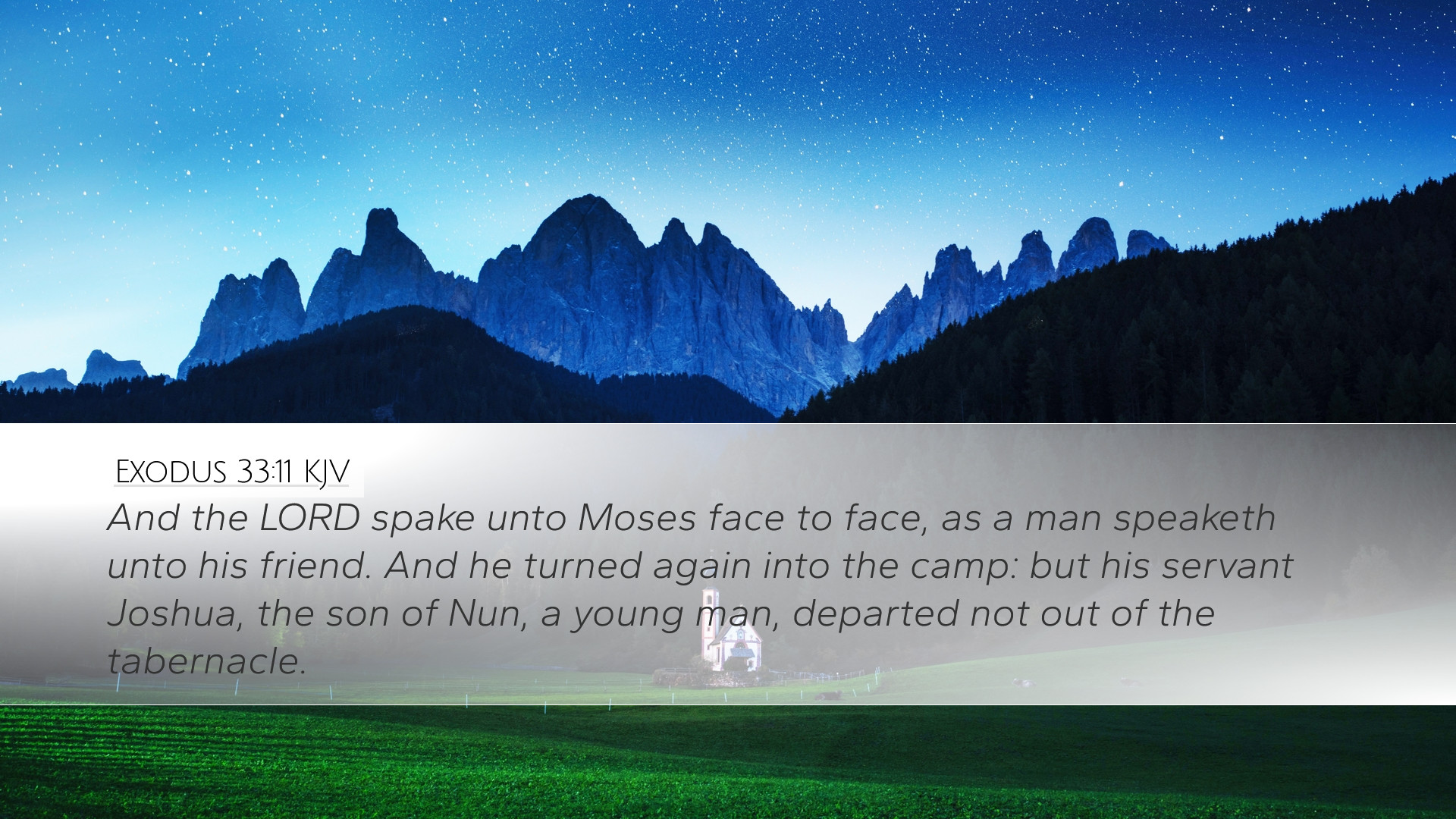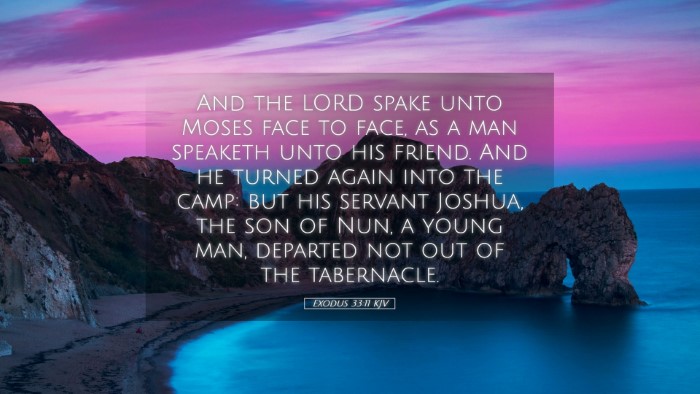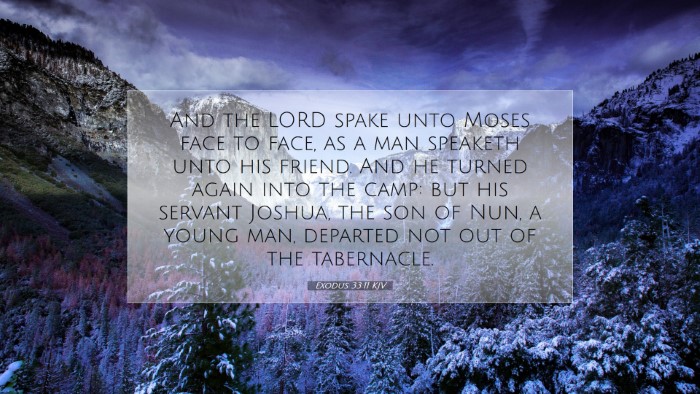Exodus 33:11 - Biblical Commentary
Verse: "And the Lord spake unto Moses face to face, as a man speaketh unto his friend. And he turned again into the camp: but his servant Joshua, the son of Nun, a young man, departed not out of the tabernacle."
Introduction
This verse highlights a unique and intimate relationship between God and Moses. It illustrates the profound nature of divine communion and sets the foundation for understanding the significance of Moses's role in the Exodus narrative. Different commentators provide insights that deepen our understanding of this encounter.
Moses' Unique Role
Matthew Henry emphasizes the exceptional nature of Moses’s fellowship with God. Unlike the common experiences of the Israelites, Moses spoke directly with God "face to face." This expression denotes not only an absence of fear but also a relationship characterized by mutual respect and intimacy.
- Face to Face Communication: Henry notes that this direct communication indicates an unparalleled closeness. God reveals His will to Moses without the intermediaries that the Israelites often faced.
The Significance of Joshua
Albert Barnes draws attention to the figure of Joshua who "departed not out of the tabernacle." This points to Joshua's commitment and desire for God's presence, suggesting a model of faithfulness for leaders and followers alike.
- Commitment to God's Presence: Joshua's decision to remain in the tabernacle reflects a dedication to the divine, symbolizing how leaders should be devoted to seeking God's guidance continuously.
Divine Friendship
Adam Clarke comments on the phrase "as a man speaketh unto his friend," indicating that God’s interaction with Moses was not just authoritative but relational. This relationship serves as a model for the kind of friendship believers can have with God through faith.
- Inviting Relationship: Clarke expounds on the nature of friendship with God, suggesting that believers are called to seek such intimacy and not merely to fulfill duties out of obligation.
Contextual Understanding
In the context of Exodus 33, this verse follows the incident of the golden calf and Moses's intercession on behalf of the Israelites. This background provides a deeper layer as Moses speaks with God amidst a people who frequently falter in faith.
- Intercession and Advocacy: The friendship that Moses shares with God is characterized by his role as an intercessor for the people. Henry observes that this aspect showcases the leader’s responsibility towards his community, emphasizing the importance of standing in the gap for others.
- God's Gracious Nature: God’s willingness to engage with Moses after such failures highlights His mercy and readiness to restore relationship with His people, a theme prevalent throughout Scripture.
Theological Implications
The encounter between God and Moses in Exodus 33:11 can be unpacked theologically, offering insights relevant to both pastoral care and academic study.
- Model for Leadership: The intimate relationship between God and Moses sets a paradigm for spiritual leadership that prioritizes an active relationship with God over mere organizational leadership.
- Access to God: The notion that Moses had direct access to God reflects the Christian belief in the priesthood of believers. This underscores the idea that through Christ, believers can approach God directly.
Conclusion
Exodus 33:11 serves as a powerful reminder of the depth of relationship that can exist between God and His followers. It encourages pastors, students, and scholars to pursue a deeper, more intimate relationship with God, echoing the desire expressed in this passage. The commitment of a leader like Joshua further emphasizes the call for all believers to remain in the presence of God.
In summary, through the insights of Matthew Henry, Albert Barnes, and Adam Clarke, we find a rich tapestry of meaning that elevates our understanding of this profound biblical moment.


